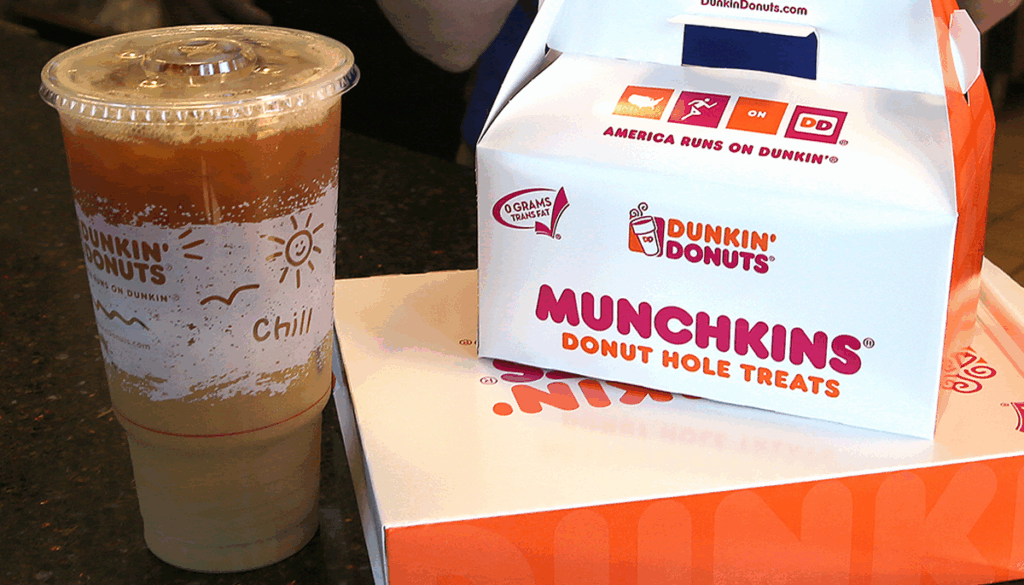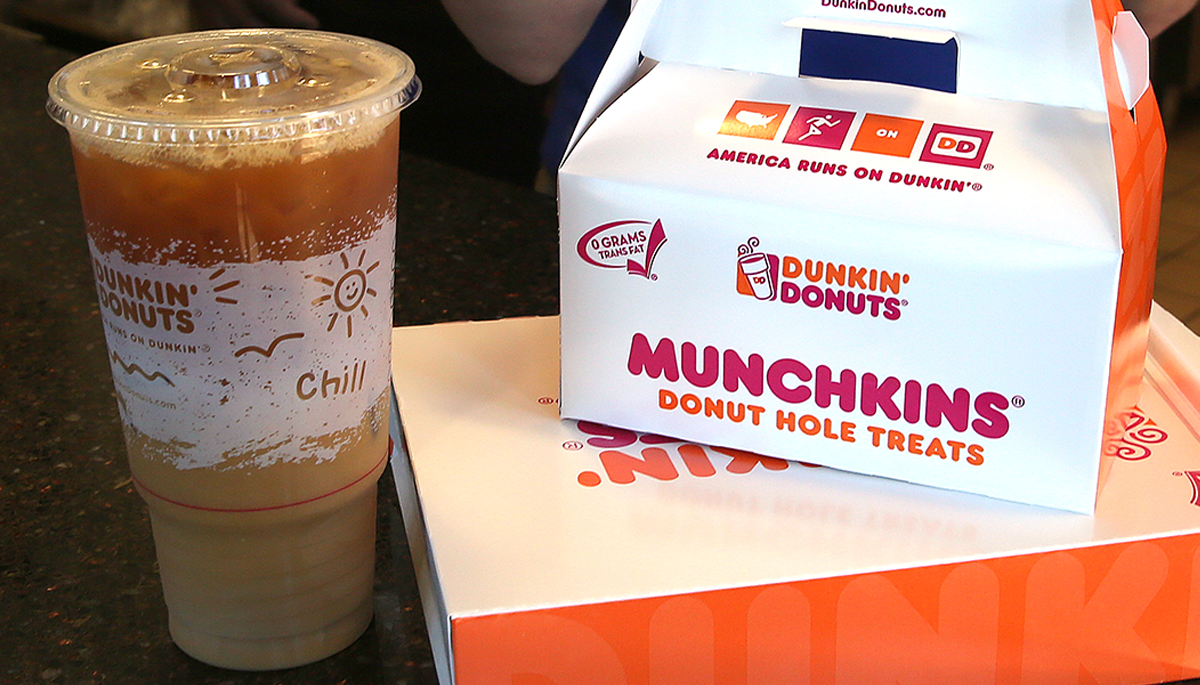
The Buzz on Dunkin’s Large Iced Coffee: How Much Caffeine Are You Really Getting?
For many, a daily ritual involves a trip to Dunkin’. The aroma of freshly brewed coffee, the promise of a quick pick-me-up, and the familiar comfort of a routine all contribute to the chain’s enduring popularity. But for those who choose the refreshing option of a large Dunkin’ iced coffee, a crucial question lingers: just how much caffeine are we consuming? This article dives deep into the caffeine content of a large Dunkin’ iced coffee, exploring the factors that influence it, the potential effects, and how it compares to other popular beverages. We’ll explore the facts, dispel the myths, and provide you with the information you need to make informed choices about your caffeine intake.
Understanding Caffeine and Its Impact
Caffeine is a naturally occurring stimulant found in various plants, including coffee beans, tea leaves, and cocoa beans. It works by blocking adenosine, a neurotransmitter that promotes relaxation and sleepiness, in the brain. This blockage leads to increased alertness, improved focus, and a temporary boost in energy. However, caffeine’s effects vary significantly depending on the individual, their tolerance, and the amount consumed.
Deciphering the Caffeine Content in a Large Dunkin’ Iced Coffee
While the exact caffeine content can fluctuate slightly depending on brewing methods and the specific blend of coffee used, a large Dunkin’ iced coffee typically contains a substantial amount of caffeine. According to publicly available nutritional information provided by Dunkin’, a large Dunkin’ iced coffee contains approximately 277 milligrams of caffeine. This is a significant dose, especially when compared to other beverages.
Factors Influencing Caffeine Levels
Several factors can impact the caffeine levels in your large Dunkin’ iced coffee:
- Type of Coffee Beans: Different coffee bean varieties have varying caffeine levels. Robusta beans, often used in Dunkin’s coffee blends, tend to have a higher caffeine content than Arabica beans.
- Brewing Method: The brewing process can also affect caffeine extraction. The longer the coffee grounds are in contact with water, the more caffeine is extracted.
- Size of the Drink: Obviously, the larger the size, the more caffeine. A small iced coffee will have significantly less caffeine than a large Dunkin’ iced coffee.
- Additives: While the base caffeine level comes from the coffee itself, added flavors, sweeteners, or creamers typically do not contribute significantly to the caffeine content.
Comparing Caffeine Levels: Large Dunkin’ Iced Coffee vs. Other Beverages
To put the caffeine content of a large Dunkin’ iced coffee into perspective, let’s compare it to other popular caffeinated beverages:
- Regular Brewed Coffee (12 oz): Approximately 120-200 mg
- Energy Drinks (Typical 12 oz): 70-150 mg (can vary widely)
- Black Tea (8 oz): Approximately 40-70 mg
- Soft Drinks (12 oz): Approximately 30-50 mg
As you can see, a large Dunkin’ iced coffee packs a considerable caffeine punch, often exceeding the caffeine content of a standard cup of brewed coffee.
Potential Effects of Caffeine Consumption
Caffeine consumption can have a range of effects, both positive and negative. The positive effects include increased alertness, improved focus, enhanced physical performance, and a potential mood boost. However, excessive caffeine intake can lead to adverse effects, such as:
- Anxiety and Nervousness: Caffeine can trigger the release of adrenaline, leading to feelings of anxiety and nervousness, especially in sensitive individuals.
- Insomnia: Caffeine can interfere with sleep patterns, making it difficult to fall asleep or stay asleep.
- Digestive Issues: Caffeine can stimulate the digestive system, potentially causing stomach upset or diarrhea.
- Increased Heart Rate: In some individuals, caffeine can cause a temporary increase in heart rate and blood pressure.
- Withdrawal Symptoms: Regular caffeine consumption can lead to physical dependence. Suddenly stopping caffeine intake can result in withdrawal symptoms such as headaches, fatigue, and irritability.
It is crucial to monitor your body’s response to caffeine and adjust your intake accordingly.
Recommended Daily Caffeine Intake
The Food and Drug Administration (FDA) considers 400 milligrams of caffeine per day to be a safe amount for healthy adults. However, individual tolerance varies. It’s important to pay attention to how your body reacts and adjust your consumption accordingly. Consuming a large Dunkin’ iced coffee brings you close to that daily limit, so be mindful of other sources of caffeine throughout the day.
Caffeine and Specific Populations
Certain populations should exercise extra caution when consuming caffeine:
- Pregnant Women: The American College of Obstetricians and Gynecologists (ACOG) recommends that pregnant women limit caffeine intake to 200 mg per day.
- Breastfeeding Women: Caffeine can pass through breast milk and affect the infant. It’s advisable for breastfeeding mothers to limit their caffeine intake.
- Individuals with Anxiety Disorders: Caffeine can exacerbate anxiety symptoms.
- Individuals with Heart Conditions: Caffeine can increase heart rate and blood pressure, potentially posing a risk for individuals with heart conditions.
- Children and Adolescents: Children and adolescents are generally more sensitive to caffeine’s effects.
Making Informed Choices about Your Dunkin’ Iced Coffee
Understanding the caffeine content of a large Dunkin’ iced coffee empowers you to make informed decisions about your consumption. Consider the following tips:
- Be Aware of Your Tolerance: Pay attention to how caffeine affects you. If you experience negative side effects, consider reducing your intake.
- Monitor Your Daily Intake: Keep track of all sources of caffeine in your diet, including coffee, tea, energy drinks, and soft drinks.
- Consider Smaller Sizes: If you’re concerned about caffeine intake, opt for a smaller size of iced coffee.
- Ask for Decaf: Dunkin’ offers decaffeinated coffee options, allowing you to enjoy the flavor without the caffeine.
- Space Out Your Consumption: Avoid consuming caffeine too late in the day to prevent sleep disturbances.
The Bottom Line on Large Dunkin’ Iced Coffee Caffeine
A large Dunkin’ iced coffee provides a significant dose of caffeine. While this can be beneficial for boosting alertness and focus, it’s essential to be aware of the potential effects and to consume it responsibly. By understanding the caffeine content, considering your individual tolerance, and making informed choices, you can continue to enjoy your large Dunkin’ iced coffee while prioritizing your health and well-being. The information provided in this article can help you make the best decisions for you, whether you’re a daily Dunkin’ devotee or an occasional treat seeker. Remember, moderation and awareness are key. Consider your lifestyle and the other ways you consume caffeine. A large Dunkin’ iced coffee is a popular choice, but understanding its caffeine content allows you to enjoy it safely and make informed decisions about your overall caffeine intake.
Frequently Asked Questions (FAQ)
- How much caffeine is in a Dunkin’ Donuts iced coffee? The caffeine content varies based on size. A large Dunkin’ iced coffee contains approximately 277mg.
- Is a large iced coffee from Dunkin’ healthy? While iced coffee can be part of a balanced diet, the caffeine content should be considered, along with any added sugars or cream.
- Does a large Dunkin’ iced coffee have more caffeine than a regular coffee? Yes, a large Dunkin’ iced coffee typically contains more caffeine than a standard cup of brewed coffee.
- How can I reduce the caffeine in my Dunkin’ iced coffee? You can order a smaller size, choose decaffeinated options, or request less coffee in your drink.
- What are the side effects of too much caffeine? Side effects can include anxiety, insomnia, digestive issues, and increased heart rate.
This article provides a comprehensive overview of the caffeine content in a large Dunkin’ iced coffee. It empowers you with the knowledge to make informed decisions about your caffeine consumption and overall well-being. Remember to listen to your body and prioritize your health.
[See also: Benefits of Caffeine for Athletes, Caffeine and Sleep: What You Need to Know, The Truth About Energy Drinks]


